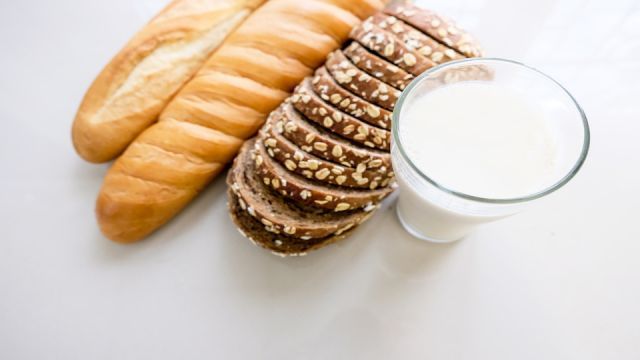
Most of us have had to deal with pesky ingrown hairs in our pubic region before. They often hurt and can be highly irritating, take a long time to heal and can even become infected. They happen when a strand of hair gets the crazy idea to curl backward or sideways into the skin.
According to a study, of over 3000 women, 84% regularly removed their pubic hair. Some of these women would just do quick trim work while 62% would go “Barbie” removing all their hair.
This results in an inflamed, red bump. If you remove your hair on a pretty consistent basis, you are more than likely to battle with ingrown hairs.
Pubic hair is there for a reason
Many women think that removing their pubic hair is a good hygiene move. In reality, pubic hair helps to protect the genitals, keeping dirt, and harmful bacteria at bay.
According to a study, published in the journal Sexually Transmitted Infections, those who frequently remove their pubic hair experience an 80 percent higher risk of developing an STI.
If you still want to remove your hair… stop doing these things now to avoid ingrown hairs
Here are four things you should stop doing now to avoid having to deal with painful pustules
You are waxing and shaving too frequently
Although it may be tempting to remove hair as soon as it starts to grow back, this will actually cause you problems in the long run.
When you try to remove hair that is shorter than ¼ of an inch, your razor blade or wax has nothing to hang on to, and this causes hairs to break in half instead of being pulled out from the roots or at the surface.
This causes inflammation, irritation and sets the scene up perfectly for ingrown hairs. Be patient, allow the hair to grow back before shaving or waxing.
Your shaving technique is off
Believe it or not, there is a preferred way to shave your pubic area. You should never shave dry, always use some kind of organic moisturizing cream. Coconut oil works well.
Using a moisturizer will help prevent nicks and reduce the risk of infection. Always shave the direction of your hair, or you will cause hairs to be caught up under the skin. This will lead to ingrown pubic hairs.
Take a break after shaving
If you do a “Barbie” shave or wax, meaning you take all the hair off your pubic region, you need to let the area rest for at least 24 hours. The once protected skin is sensitive and vulnerable to infection.
Put working out on hold, don’t swim in a pool or an ocean, take a hot shower or sunbathe. These things will further irritate the delicate skin. Apply an organic ingrown hair cream immediately after shaving and for seven days following.
This will calm irritation and help prevent bumps. The best place to apply the cream is after you take a shower when your skin is warm. This allows the cream to penetrate the skin.
Use a body scrub and exfoliate
Keep in mind that a week after shaving or waxing does not put you out of the danger zone as far as ingrown hairs are concerned. You will need to maintain a diligent routine to keep irritation at bay. Massage your pubic region in the shower using a natural scrub to keep pores unclogged and hairs from becoming trapped.
Exfoliating a few times a week will keep the hairs growing the right way as they come in. Also, as mentioned above, continue to apply the ingrown hair cream every other day. When you get out of the shower, apply organic coconut oil to your skin, this will keep it soft and hydrated.
Natural remedies for ingrown hairs
If you do find yourself dealing with the pain and irritation of ingrown hairs, here are a few natural ways to ease the discomfort.
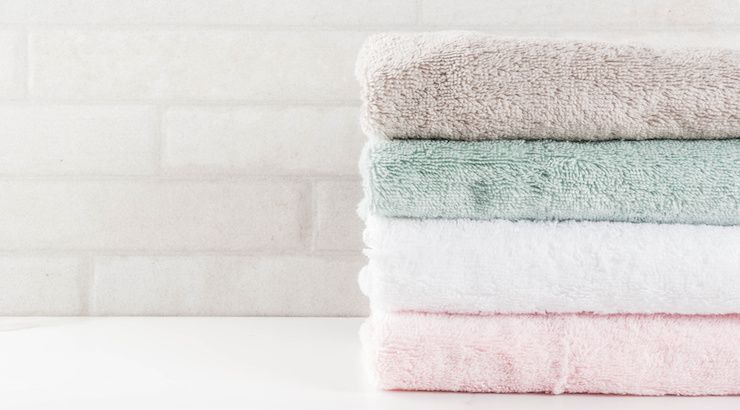
- Apply a warm compress: Wet a clean, soft cloth with warm water and place it on the inflamed area for 10-15 minutes. Do this a few times a day until the area feels better.
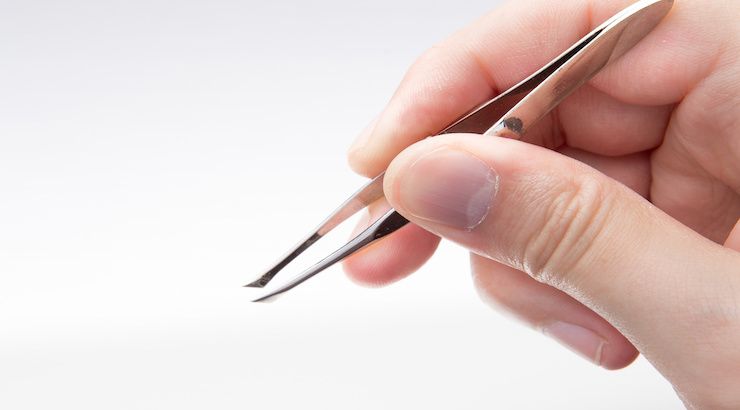
- Gently pull the hair out: Sterilize tweezers with alcohol and gently grasp the hair at the tip and pull it straight out. Clean the area with warm water and soap after removing the hair.
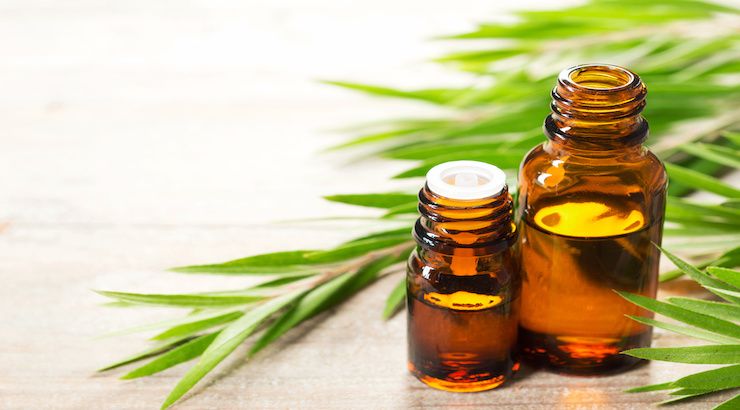
-
Tea tree oil: Tea tree (Melaleuca alternifolia)is native to Austrailia and has been used for a very long time for a variety of medicinal purposes. A study shows that tea tree oil has potent antimicrobial, antibacterial, antifungal, antiviral and anti-inflammatory properties and can speed up healing time. Tea tree oil can help prevent ingrown hairs, heal ingrown hair infections, and prevent future infections of ingrown hair. To treat areas prone to ingrown hair, moisturize skin using a combination of 8 drops tea tree oil and 1 ounce of shea butter. To remedy ingrown hairs, combine 20 drops of tea tree oil with 6 ounces of warm distilled water. This combination will open up pores and loosen ingrown hairs. Apply the mixture to the affected area using a clean washcloth. Repeat this each morning and evening until the area is healed. Keep your pubic area protected and moisturized by making a mixture using ½ cup of organic coconut oil and 5 drops of tea tree oil. Apply liberally daily to your pubic region.
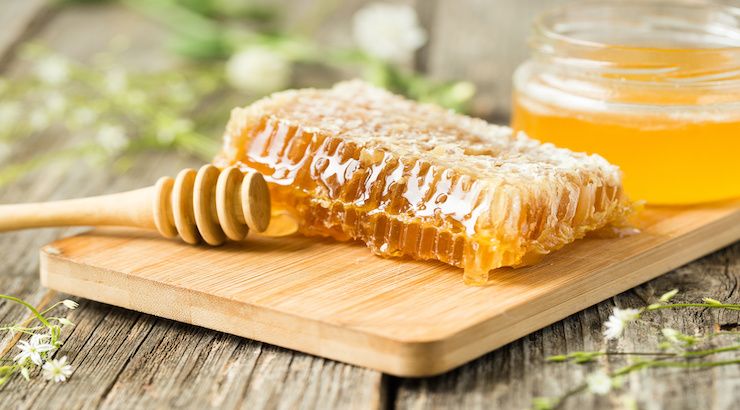
-
Raw honey: Honey is an amazing natural remedy for any area of inflamed or irritated skin. It has powerful antibacterial properties and can bring much relief to sore skin caused by ingrown hairs. Apply honey directly to skin and let it sit on the inflamed area for about fifteen minutes. Rinse with cold water and repeat as necessary.
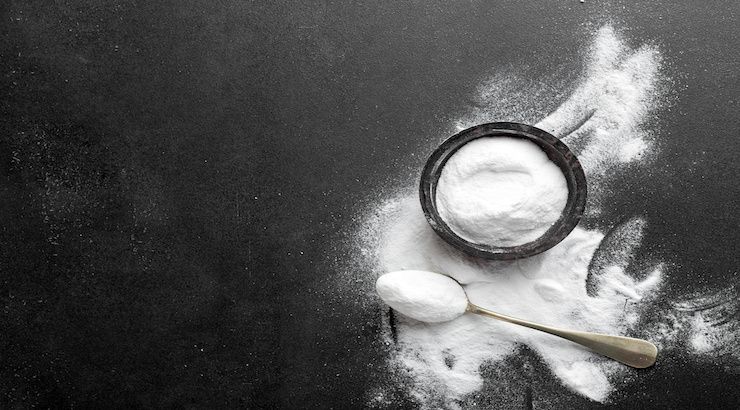
-
Baking soda: Make a paste using baking soda and a little water. Apply the mixture to the inflamed skin using a clean cotton ball and let it sit for five minutes. Rinse off with warm water and pat dry with a clean towel.
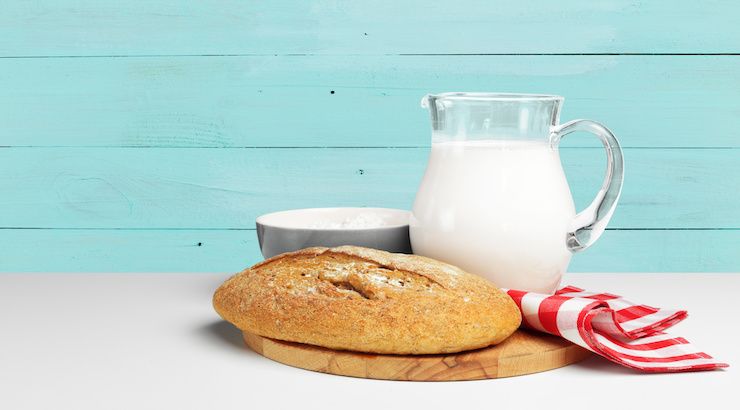
-
Warm bread and milk: As strange as it may sound, this remedy brings great comfort. Simply dip a piece of bread into some warm milk and apply to the inflamed area. Let it sit on the skin for about 15 minutes and remove. Rinse the area with warm water and pat dry. This remedy will ease itching, eliminate inflammation and reduce pain.

-
Coffee: Coffee is not only a powerful health tonic, but it is also an excellent remedy for ingrown hairs. Mix a tablespoon of coffee with some warm water, massage the mixture into the inflamed skin and rinse with lukewarm water. This will improve circulation and skin health.
-The Alternative Daily

